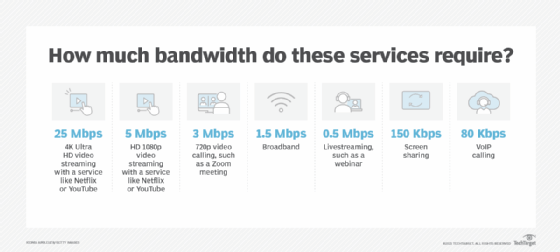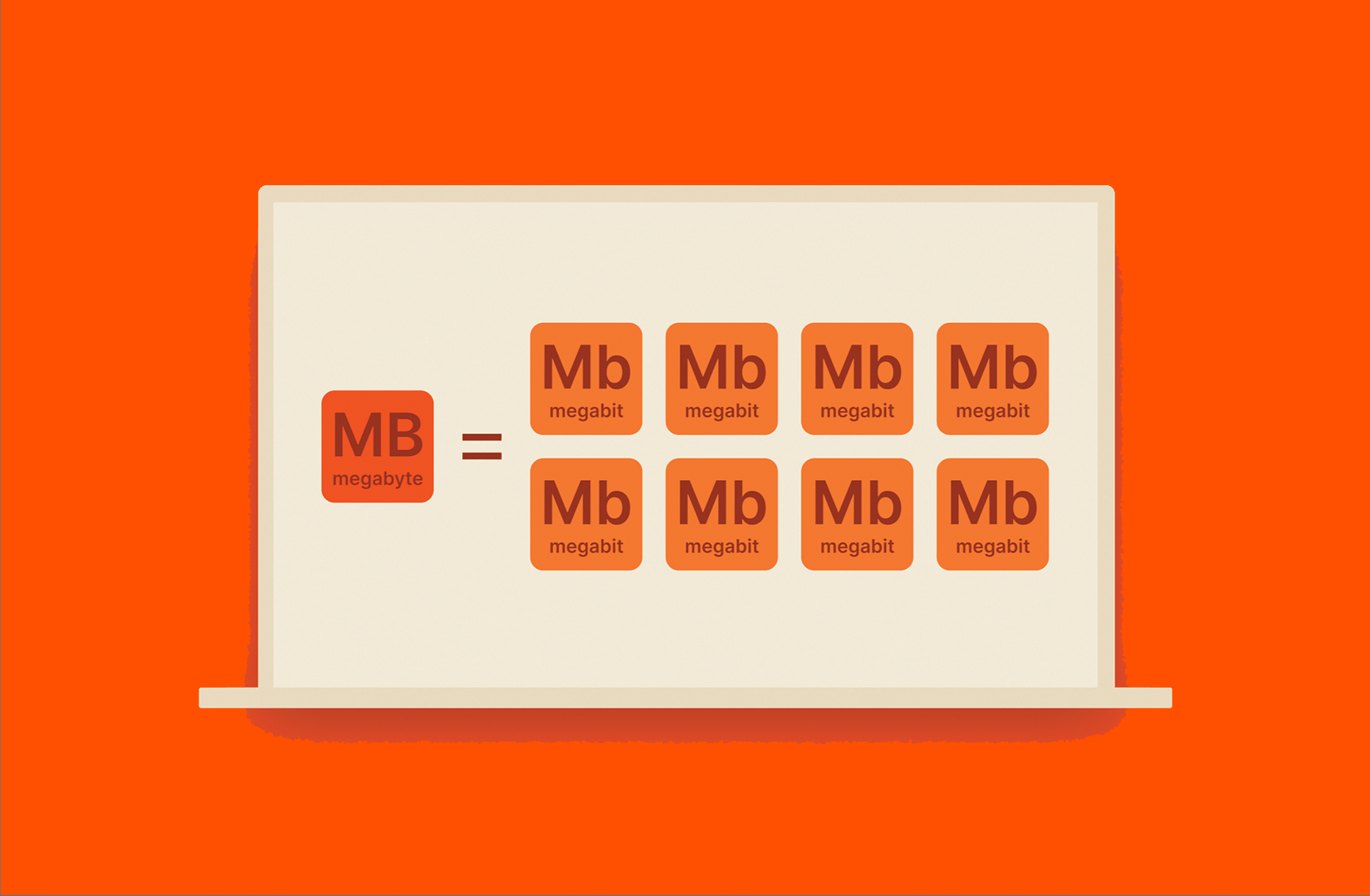Exactly how to Choose the Right Internet Plan Based Upon Megabits Per Second
Wiki Article
How Megabits Per Second Influence Your Online Activities
The principle of megabits per second (Mbps) plays an essential function in shaping our on-line experiences. Higher Mbps can enhance efficiency and decrease disturbances, while insufficient speeds might promote disappointment and inefficiency.Recognizing Megabits Per Second
When considering net rate, it's important to understand the concept of megabits per second (Mbps), which works as a typical measurement for data transfer prices. This metric quantifies how much data can be sent over a net connection in one second, providing a clear understanding of efficiency capabilities - Megabits Per Second. For context, one megabit amounts to one million little bits, and Mbps is typically made use of to share transmission capacity for various on the internet tasksA higher Mbps indicates a much faster internet link, making it possible for users to carry out tasks such as downloading files, searching sites, and taking part in on-line video gaming more successfully. As an example, normal surfing needs around 1-5 Mbps, while streaming high-definition video clip may require 5-25 Mbps. Understanding these demands is essential for identifying the proper internet speed required for certain activities.
In addition, the number of gadgets connected to a network can affect overall efficiency. Multiple users streaming, gaming, or downloading and install simultaneously can strain available transmission capacity, resulting in slower rates - Megabits Per Second. Examining personal online habits and requirements is crucial in picking a net plan that lines up with one's needs, making sure a seamless electronic experience
Streaming and Buffering Issues
Streaming high-def web content has come to be a staple of modern on-line amusement, yet it is commonly come with by discouraging buffering issues. These disruptions can significantly interfere with the viewing experience, leading to frustration and potential loss of audience interaction. Buffering happens when the information sent from the streaming solution is not received quickly enough to keep a smooth playback, often as a result of inadequate internet rate measured in megabits per second (Mbps)
Moreover, real-time streaming can be impacted by network blockage, which occurs when numerous devices share the very same data transfer. As a result, enhancing connection rate and making certain adequate Mbps is important for a smooth streaming experience. As streaming solutions remain to progress, comprehending the impact of Mbps on buffering issues continues to be crucial for consumers looking for undisturbed entertainment.
Online Pc Gaming Efficiency
The effect of internet speed on online tasks prolongs past streaming, substantially influencing on the internet gaming efficiency. In affordable pc gaming, reduced latency and high data transfer are vital for a seamless experience. A quick connection minimizes lag, enabling gamers to respond quickly to in-game events, which can be the distinction between success and loss.Data transfer, measured in megabits per second (Mbps), plays a crucial duty in sustaining numerous gadgets and pc gaming platforms all at once. Inadequate data transfer can cause dropped connections or minimized game top quality, adversely influencing gameplay. On-line multiplayer games require substantial data transfer, particularly throughout peak pc gaming hours when many gamers are online.
In addition, the sort of video game can additionally dictate the needed web rate. Hectic first-person shooters require greater rates to preserve responsiveness, while turn-based strategy video games may operate moderately well on lower rates. As on-line gaming remains to evolve, with increasing visual fidelity and even more intricate multiplayer settings, the demand for higher Mbps will only magnify. Subsequently, players need to ensure they have ample web rate to improve their video gaming efficiency and general experience. Spending in a robust internet connection is crucial for players looking to maximize their efficiency and satisfaction.
Video Clip Conferencing Quality
In today's electronic landscape, video clip conferencing top quality is heavily affected by web rate, particularly in terms of transmission capacity and latency. High-grade video calls need adequate transmission capacity to transfer audio and video information perfectly. Commonly, a minimum of 1.5 Mbps upload and download speeds is advised for basic definition video clip, while high-def video clip conferencing normally demands a minimum of 3 Mbps.Latency, or the delay between sending out and receiving data, also plays a vital function in the customer experience. Low latency makes certain that conversations flow naturally without unpleasant stops briefly or interruptions. Preferably, latency should be listed below 150 milliseconds for efficient interaction. Higher latency can lead to echo, lag, and disjointed interactions, which can impede cooperation and engagement during meetings.
Furthermore, multiple participants in a video clip conference can strain offered bandwidth, necessitating even higher rates. Network congestion, often brought on by simultaneous tasks like streaming or downloading, can additionally weaken video top quality. Thus, for organizations depending on video clip conferencing for remote partnership, understanding the partnership between megabits per overall and second interaction high quality is vital for keeping productivity and enhancing online interactions.
Selecting the Right Net Plan
Choosing a proper net plan is vital for making sure ideal go to the website performance in various online activities, specifically in settings that require high bandwidth, such as video conferencing and online video gaming. Megabits Per Second. When considering an internet strategy, it is vital to assess both the speed and data allocation to match your certain use needsFor families with numerous customers involving in simultaneous activities, a plan using greater megabits per second (Mbps) is advised. Commonly, a minimum of 25 Mbps appropriates for common streaming and browsing, while strategies surpassing 100 Mbps are more suitable for even more intensive tasks. Additionally, consider the nature of your online activities; video conferencing needs at the very least 1.5 Mbps publish speed, while on-line video gaming might require a reduced latency but regular link.
It is likewise vital to examine your data cap. Unlimited information plans can stop throttling and disruptions, specifically if hefty use is expected. Study service providers in your area, as availability and rates can differ. By thoughtfully picking a web plan customized to your requirements, you can boost your online experience, ensuring smooth, uninterrupted accessibility to your preferred activities.
Verdict
In final thought, the importance of megabits per second (Mbps) in forming online activities can not be overstated. A thorough understanding of private or home Mbps demands is essential for picking an ideal internet strategy that properly sustains varied online tasks and customer demands.

Usually, a minimum of 25 Mbps is suitable for typical streaming and surfing, while strategies going beyond 100 Mbps are preferable for even more intensive jobs. Furthermore, take into consideration the nature of your online tasks; video clip conferencing calls for at the very least 1.5 Mbps submit rate, while on the internet video gaming might require a reduced latency yet consistent link.
Report this wiki page